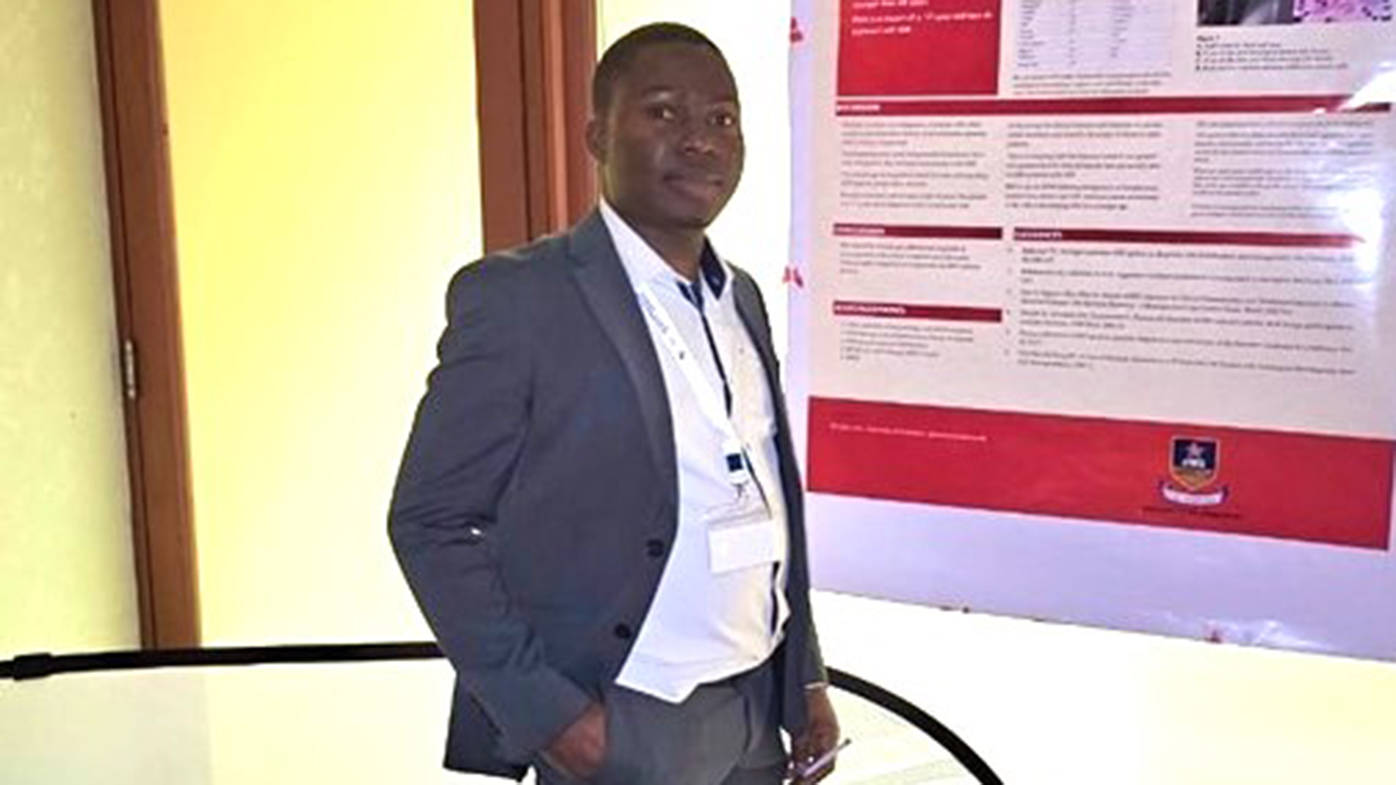
Dr. Moses Chatambudza said a grant from the BMS Foundation is helping a group he established diagnose more people with multiple myeloma.
He is one of four hematologists serving about 15 million people in his home country when he returned in 2021. Semondile said two of the four are post-retirement age and could retire at any time.
Chatambudza joined the hematology unit at Parirenyatwa Hospital, the largest teaching hospital in Zimbabwe. He said he established a consortium that received a two-year grant from the Foundation to develop a comprehensive, sustainable and data-driven multiple myeloma program in three provinces of Zimbabwe.
He said many people with the disease were previously going undiagnosed, but the grant enables his program to do a better job of diagnosing patients.
In turn, that provides the opportunity to talk about stem cell transplants, which can give patients more time with their family and friends. And more time is priceless.
‘The vessel that brings about change’
Semondile finds it difficult to put into words what the Foundation’s commitment to multiple myeloma patients means to her. “I count myself very lucky to be in this position,” she said. “I just want to be the vessel that brings about change.”
She cherishes being able to sit across the table from people who run the programs and hear about the impact they’re making. It’s one thing to read their reports, but sharing experiences in person is something altogether different.
Semondile said she makes sure not to wear makeup on the days that patients share their stories, because she often finds herself in tears. “If you make one little helpful change for a person, they’re just really over the moon,” she said.
She believes Phangisile Mtshali, who created the program, would be proud of the work being done. Mtshali passed away in January.
“It’s amazing how her spirit lies in each and every project,” she said.


